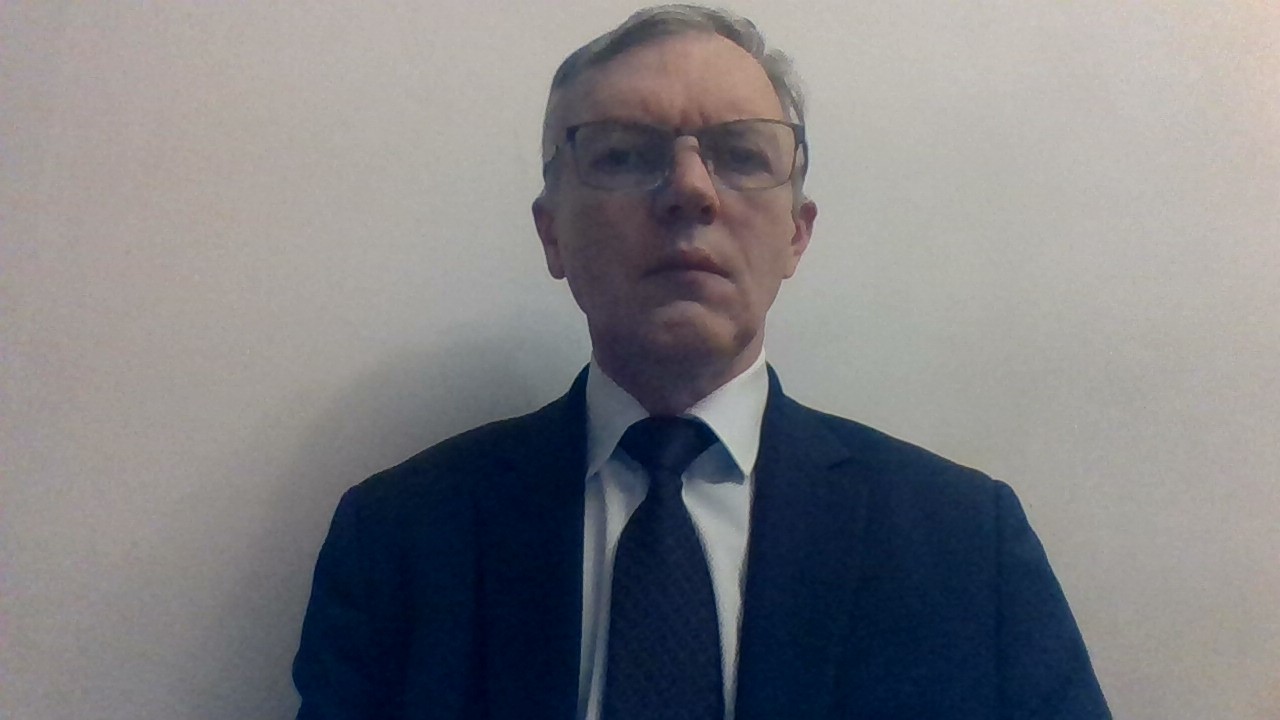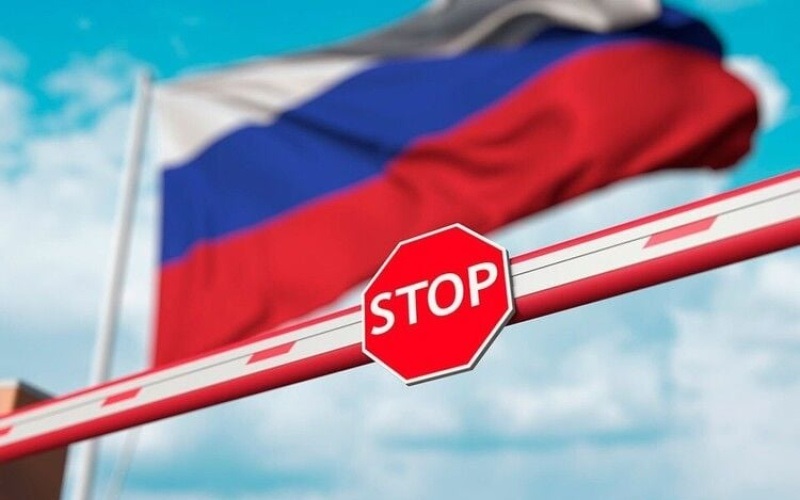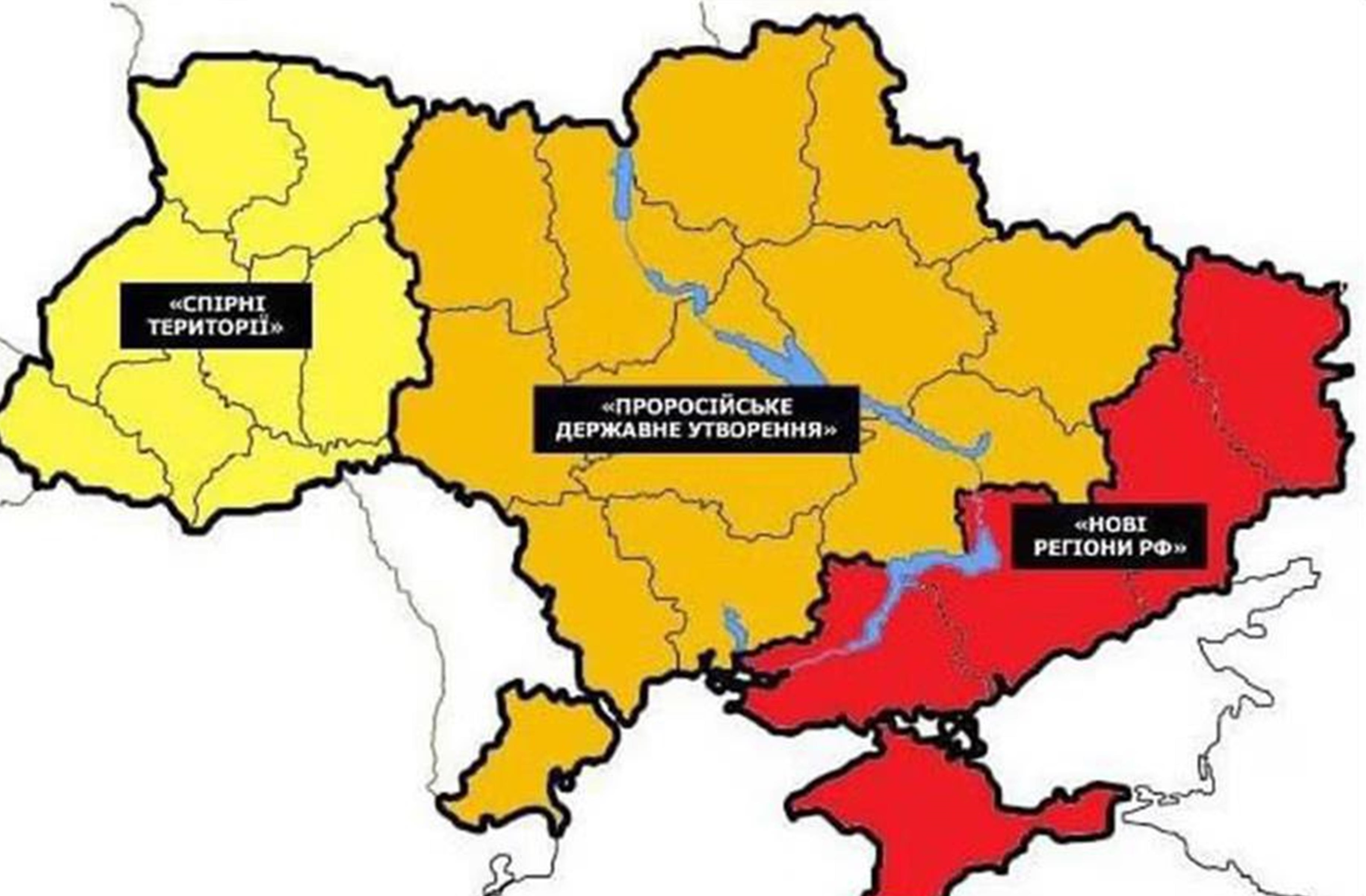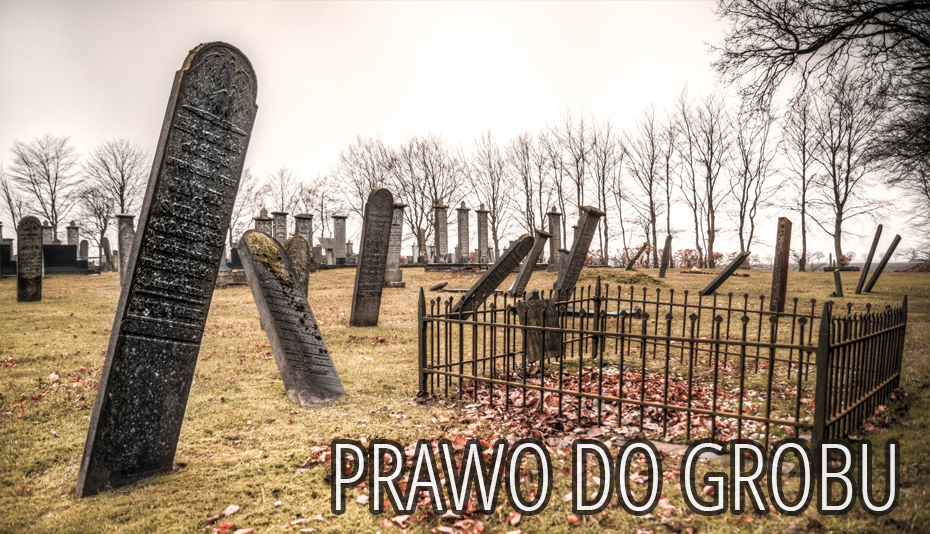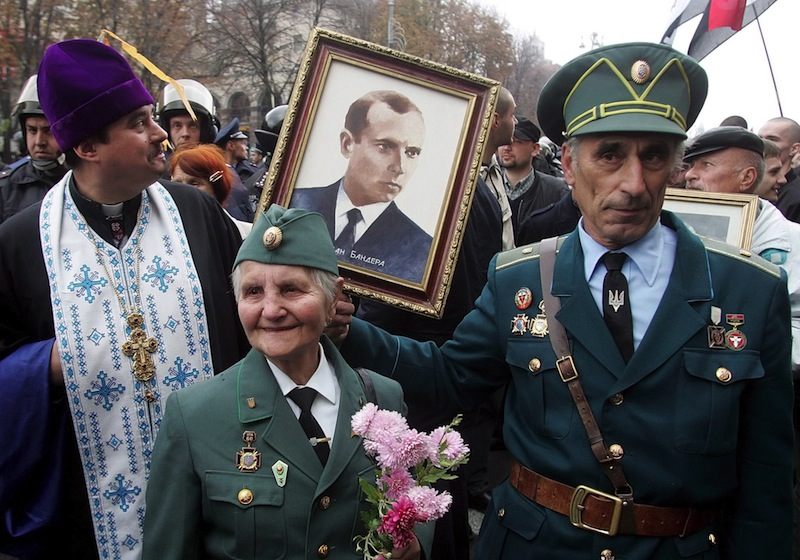-
Bohaterstwo, które podziwiał świat. „W..
POLSKA2 lata temu -
Neon24 – ruska V kolumna
POLSKA3 lata temu -
Nowe osoby w Zarządzie Amiblu
BIZNES3 lata temu -
Mechanizm warunkowości – krok ku Homo Eu..
POLSKA3 lata temu -
Wściekłe i wulgarne „Lemparcice” ..
POLSKA4 lata temu -
Rolnicze poparcie dla prezesa Elewarru – ..
NEWS4 lata temu
Czy obywatel może krytykować papieża, prezydenta, polityka, pisarza, aktora, robotnika?

Poniżej zebrałem szereg pytań dotyczących sprawy IC692/09. Sprawa była rozpatrywana przez Sąd Okręgowy w Gdańsku i ma aż tyle błędów, że można byłoby ją zgłosić do Księgi Guinnessa. Below, I have collected a series of questions regarding case IC692 / 09. The case was examined by the District Court in Gdańsk and has so many errors that it could be reported to the Guinness Book. Zasadniczo – co moje pytanie, to błąd sądu… A zatem – / Basically – what my question is an error of judgment … So – Czy obywatel może krytykować papieża, prezydenta, polityka, pisarza, aktora, robotnika? Can a citizen criticize a pope, a president, a politician, a writer, an actor, a worker? Podobieństwo do innych spraw […]
Poniżej zebrałem szereg pytań dotyczących sprawy IC692/09. Sprawa była rozpatrywana przez Sąd Okręgowy w Gdańsku i ma aż tyle błędów, że można byłoby ją zgłosić do Księgi Guinnessa.
Below, I have collected a series of questions regarding case IC692 / 09. The case was examined by the District Court in Gdańsk and has so many errors that it could be reported to the Guinness Book.
Zasadniczo – co moje pytanie, to błąd sądu… A zatem – / Basically – what my question is an error of judgment … So –
Czy obywatel może krytykować papieża, prezydenta, polityka, pisarza, aktora, robotnika?
Can a citizen criticize a pope, a president, a politician, a writer, an actor, a worker?
Podobieństwo do innych spraw jest przypadkowe/The similarity to other cases is coincidental.
Czy obywatel ma prawo w kulturalny sposób omówić w internecie cudzy komentarz, dowcip, odezwę, propozycję, felieton, cytując i podając dane dyskutanta? Co na to prawo prasowe i autorskie?
Does a citizen have the right to discuss someone else’s comment, joke, appeal, proposal, feuilleton in a cultural way on the internet, quoting and giving the data of the discussant? What does the press and copyright law say?
Czy ma prawo omówić wspomniane teksty, w szczególności, jeśli zostały dobrowolnie zamieszczone w internecie?
Does he have the right to discuss these texts, in particular if they have been voluntarily posted on the internet?
Czy ma prawo omówić wspomniane teksty bez zgody autora (czy p. Mickiewicz musiałby mieć zgodę p. Słowackiego na omówienie jego dowcipu wygłoszonego podczas publicznego spotkania)?
Does he have the right to discuss these texts without the author’s consent (would Mr. Mickiewicz have to have Mr. Słowacki’s consent to discuss his joke delivered during a public meeting)?
Czy ma prawo umieścić dane autora cytowanego a omawianego tekstu, a może jest to wręcz obowiązek wymagany prawem autorskim?
Does he have the right to place the data of the author of the quoted and discussed text, or maybe it is even an obligation required by copyright?
Czy ma prawo omówić wspomniane teksty na dowolnym portalu w dowolnym języku?
Does he have the right to discuss these texts on any portal in any language?
Czy ma prawo spodziewać się od inteligentnego (np. doktoranta) powoda kulturalnej riposty w ramach dyskusji, nie zaś pomstowania i grożenia sprawą sądową?
Does he have the right to expect from an intelligent (e.g. doctoral student) plaintiff a cultural retort as part of a discussion, not to retaliate and threaten a court case?
Czy ma prawo uznać powoda za hipokrytę, który zarzuca obywatelowi ujawnienie jego nazwiska na innym portalu, a sam wcześniej dokładnie to samo czyni z nazwiskiem obywatela?
Does he have the right to consider a plaintiff a hypocrite who accuses a citizen of revealing his name on another portal, and he himself does exactly the same with the name of a citizen?
Czy ma prawo uznać powoda za hipokrytę, który zarzuca obywatelowi uchybienie mu na godności, a sam wcześniej ubliża obywatelowi niewybrednym słownictwem?
Does he have the right to consider a plaintiff as a hypocrite who accuses a citizen of violating his dignity, and who himself previously insults the citizen with indiscriminate vocabulary?
Czy ma prawo uznać powoda za komedianta, który wyzywa obywatela („a to ohydny donosiciel”), po czym udaje się do komisariatu policji, składając doniesienie na obywatela?
Does he have the right to consider the plaintiff as a comedian who offends the citizen („that’s hideous squealer”) and then goes to the police station, denouncing a citizen?
Czy ma prawo skrytykować powoda, będącego doktorantem, że powinien dbać o honor swej uczelni i przestrzegać obowiązującego tamże kodeksu etyki?
Does he have the right to criticize the plaintiff who is a doctoral student that he should take care of the honor of his university and comply with the code of ethics in force there?
Czy ma prawo uznać działanie powoda za bezprawne, kiedy rozgłasza portalom fałszywe informacje o posiadaniu przez obywatela drugiego konta, z którego rzekomo poniewierał powoda, domagając się – bazując na tym błędnym przekonaniu – skasowania artykułów obywatela?
Does he have the right to consider the plaintiff’s action to be unlawful when he disseminates false information to portals about the citizen’s possession of a second account from which he allegedly bedeviled the plaintiff, demanding – based on this erroneous belief – the deletion of the citizen’s articles?
Czy ma prawo uznać powoda za histeryka i pieniacza, który bez starannego zbadania sprawy drugiego konta, bez wzięcia pod uwagę głosów niektórych dyskutantów (że obywatel nie ma dwóch kont), zacietrzewił się i udał do dwóch sądów, aby walczyć o swój honor, o którym wcześniej jednak zapomniał podczas wpisywania niewybrednych żarcików i uwag?
Does he have the right to consider the plaintiff to be hysterical and brawler who, without carefully examining the case of the second account, without taking into account the voices of some of the discussants (that the citizen does not have two accounts), irritated and went to two courts to fight for his honor, which, however, he had previously forgotten when entering indiscriminate jokes and remarks?
Czy ma prawo żądać od powoda, aby poinformował wszystkie portale, na których domagał się skasowania tekstów obywatela, aby je ponownie zamieścili, bowiem przekonanie o posiadanym drugim koncie było jednak fałszywe?
Does he have the right to demand from the plaintiff to inform all portals on which he demanded the deletion of the citizen’s texts, to re-post them, because the knowledge of the second account was false?
Czy ma prawo żądać od powoda, aby go przeprosił za rozsyłanie nieprawdziwych i zniesławiających informacji, jakoby obywatel „kłamał, został złapany na gorącym uczynku i nieetycznie się zachowywał”?
Does he have the right to demand that the plaintiff apologize to him for sending false and defamatory information that the citizen „lied, was caught red-handed and behaved unethically”?
Czy ma prawo dworować sobie z powoda, który dowodzi, że styl pisania obywatela i właściciela drugiego konta są podobne, czym zaprzecza definicji podobieństwa i wykazuje się kryzysem swej inteligencji oraz czy ma prawo zamieścić skany dowodzące, jak bardzo powód się myli?
Does he have the right to court a plaintiff who proves that the writing style of the citizen and the owner of the other account are similar, that he denies the definition of similarity and shows a crisis of his intelligence, and does he have the right to post scans proving how wrong the plaintiff is?
Czy ma prawo wyrazić zdumienie, że powód wybrał drogę konfrontacji i wieloletniego sądzenia się oraz narażania swej kariery i osoby na ośmieszenie?
Does he have the right to express astonishment that the plaintiff has chosen the path of confrontation and long-term judging and exposing his career and person to ridicule.
Czy ma prawo wyrazić ciekawość, jak zareagują dzieci powoda, kiedy dotrze do nich prawda, że rodzicielka jako inteligentna kobieta całkiem nieźle sobie poczynała pośród męskich twardych żartów, że w złości pozwała obywatela i że w końcu poznają bezlitosną prawdę, iż mamusia nie miała racji i kłamała?
Does he have the right to express curiosity about how the plaintiff’s children will react when the truth reaches them, that the parent as an intelligent woman did quite well in the midst of male hard jokes, that she sued the citizen in anger, and that they will finally learn the merciless truth that mommy was wrong and lied?
Czy ma prawo omawiać patologię panoszącą się na portalu zdominowanym przez studentów, popieranych przez powoda doktoranta i wyrażać rozczarowanie owym kwiatem polskiej inteligencji?
Does he have the right to discuss the pathology prevailing on the portal dominated by students, supported by the doctoral student plaintiff, and express disappointment with this flower of the Polish intelligentsia?
Czy ma prawo sprostować kłamstwo mecenasa: „Głoszone przez Pana twierdzenia, sformułowane opinie i wskazane fakty nie zostały oparte na prawdzie” poprzez zamieszczenie skanów przeczącym słowom mecenasa?
Does he have the right to correct the lie of the attorney: „Your claims, formulated opinions and indicated facts were not based on the truth” by posting scans of the attorney 's contradictory words?
Czy ma prawo odpisać mecenasowi na zarzut: „w sposób dotkliwy naruszają dobre imię i prawo do prywatności mojego mandanta, tak niezbędne dla wykonywania działalności twórczej w dziedzinie nauczania i pisarstwa”, że powód nie produkował się na prywatnym portalu i że pisząc w sposób naruszający regulamin portalu sam dotkliwie naruszył swoje dobre imię i prawo do prywatności?
Does he have the right to reply to the attorney on the accusation: „they severely violate the good name and the right to privacy of my client, so necessary for the performance of creative activities in the field of teaching and writing”, that the plaintiff did not produce himself on a private portal and that by writing in a way that violates the rules of the portal, he himself severely violated his good name and the right to privacy?
Czy ma prawo odpisać mecenasowi na jego spostrzeżenie : „Informuję Pana, iż dobro osobiste jakim jest dobre imię i nienaganna opinia osoby publicznej, jakim jest wykładowca i pisarz, bezsprzecznie podlega ochronie przewidzianej w Kodeksie cywilnym. Naruszając więc dobra osobiste mojego mandanta, naraża się Pan na odpowiedzialność zarówno cywilną, jak i karną”, że zakres tej ochrony nakreślił sam powód, który zapomniał się na portalu, czego nie powinien czynić, piastując aż tak społecznie ważne stanowisko oraz że skoro sam nie zadbał o swoją nienaganną opinię, to dlaczego ma o to pretensje do innych?
Does he have the right to write back to the attorney on his observation: „I inform you that the personal good, which is the good name and impeccable opinion of a public figure, which is a lecturer and a writer, is undoubtedly subject to the protection provided for in the Civil Code. Thus, by violating the personal rights of my client, you expose yourself to both civil and criminal liability”, that the scope of this protection was outlined by the reason itself, which forgot on the portal, what he should not do while holding such a socially important position, and that if he himself did not take care of his impeccable opinion, why does he blame others for it?
Czy ma prawo zwrócić uwagę mecenasowi na fakt, że – skoro powód jest nauczycielem zajmującym się pisarstwem – powinien reprezentować znacznie wyższy poziom swych wypowiedzi i znacznie staranniejszy język oraz dobierać sobie kulturalniejszych zwolenników na portalu?
Does he have the right to draw the attention of the attorney to the fact that – since the plaintiff is a teacher dealing with writing – he should represent a much higher level of his statements and much more careful language and select more cultured supporters on the portal?
Czy ma prawo wskazywać na brak logiki w obecnych przepisach, mówiących, że przedawnienie zniesławienia liczone jest od daty pierwszego, nie zaś od ostatniego zniesławienia i czy ma prawo postulować zmianę przepisów?
Does he have the right to point out the lack of logic in the current regulations, which say that the statute of limitations for defamation is calculated from the date of the first, and not from the last defamation, and does he have the right to postulate a change in the regulations?
Czy ma prawo przekonywać prawników, że – wg obecnych przepisów – po przedawnieniu pierwszego zniesławienia, można bezkarnie w nieskończoność zniesławiać wybraną osobę i że należy uznać to za kuriozalny prawny bubel?
Does he have the right to convince lawyers that – according to the current regulations – after the limitation period for the first defamation, it is possible to defame a selected person with impunity indefinitely and that this should be considered a bizarre legal bubel?
Czy ma prawo mieć pretensje do mecenasa (kto mecenasowi dał prawo do oznajmienia, że „wskazane fakty nie zostały oparte na prawdzie”, skoro nawet nie zapoznał się z dowodami drugiej strony) i wytykać mu jaskrawy brak profesjonalizmu?
Does he have the right to have a grudge against the attorney (who gave the attorney the right to declare that „the indicated facts were not based on the truth” when he did not even read the evidence of the other side) and point out to him a clear of lack of professionalism?
Czy ma prawo zapytać mecenasa: „Czy kancelaria, której wpłaciłby przed pierwszym (cywilnym) procesem żądane 20 tys. zł, oddałaby tę kwotę po drugim (karnym) procesie”?
Does he have the right to ask the attorney: „Would the law firm, to which he would have paid the requested PLN 20,000 before the first (civil) trial, give this amount after the second (criminal) trial”?
Czy ma prawo poinformować powoda i mecenasa, że gdyby nie fałszerstwo i pomówienie, to nie byłoby ani jednego felietonu nt. powoda (a teraz jest ich ponad sto)?
Does he have the right to inform the plaintiff and the attorney that if it were not for the forgery and slander, there would not be a single feuilleton about the plaintiff (and now there are more than a hundred of them)?
Czy ma prawo – w ramach niejako obrony koniecznej spowodowanej żądaniem 20 tys. zł i groźbami wytoczenia procesów – publikować felietony nt. dyletanctwa mecenasa i pieniactwa powoda?
Does he have the right – as a kind of necessary defense caused by the demand for PLN 20,000 and threats of lawsuits – to publish feuilletons on the attorney’s dilettantism and the plaintiff’s fussiness?
Czy ma prawo zapytać mecenasa, który żądał wysokiej kary finansowej – w jakiej wysokości zaaprobowałby karę dla swego klienta po udowodnieniu fałszerstwa i za kłamstwo, czyli pomówienie obywatela o pisanie pod cudzymi danymi?
Does he have the right to ask the attorney who demanded a high financial penalty – in what amount would he approve the penalty for his client after proving a forgery and for lying, i.e. slandering a citizen of writing under someone else’s data?
Czy ma prawo wyśmiać mecenasa, który podkreśla zasługi powoda dla społeczeństwa, sugerując sędziemu, aby kierował się pozamerytorycznymi względami?
Does he have the right to ridicule the attorney who emphasizes the merits of the plaintiff for society, suggesting to the judge that he be guided by non-substantive considerations?
Czy ma prawo wykpić sędziego, który wskazuje na społeczną ważność powoda, zapominając o sprawiedliwości niezależnej od jego prestiżu?
Does he have the right to mock the judge who points to the social validity of the plaintiff, forgetting about justice independent of his prestige?
Czy ma prawo ujawnić powoda jako fałszerza i jego fałszerstwo, w szczególności zmianę w podpisie jednego nazwiska na drugie, zamieszczając skan i wyjaśniając to oszustwo?
Does he have the right to expose the plaintiff as a forger and his forgery, in particular the change in the signature of one name to another, by posting a scan and explaining this fraud?
Czy ma prawo skrytykować sędziego za zignorowanie fałszerstwa powoda podczas procesu i nazwanie tego skandalu omyłką?
Does he have the right to criticize the judge for ignoring the plaintiff’s forgery during the trial and calling the scandal a mistake?
Czy ma prawo skrytykować sędziego za wydanie wyroku z nakazem przeproszenia powoda za rzekomo niezaistniałe jego wyczyny, zamieszczając jednocześnie skany potwierdzające te czyny i dowodzące, że sędzia się jednak pomylił?
Does he have the right to criticize the judge for issuing a judgment with an order to apologize to the plaintiff for his allegedly non-existent exploits, while posting scans confirming these acts and proving that the judge however was wrong?
Czy ma prawo skrytykować sędziego za nieznajomość języka ojczystego i logiki, skoro drugi wyrok potwierdza jego indolencję w obu zakresach oraz zilustrować skanami owe niekompetencje?
Does he have the right to criticize the judge for not knowing his mother tongue and logic, since the second verdict confirms his indolence in both areas and illustrate these incompetences with scans?
Czy ma prawo ocenić, że w drugim wyroku temida rozsmarowała argumenty powoda, zarzuty mecenasa i wyrok sędziego w pierwszym procesie?
Does he have the right to evaluate that in the second verdict themis demolished the plaintiff’s arguments, the attorney’s allegations and the judge’s verdict in the first trial?
Czy ma prawo skrytykować sędziego za nieznajomość tematyki w dziedzinie zniesławienia, skoro w drugim procesie sąd – na podstawie opinii biegłego – nie uznał tekstów (zgłoszonych do pierwszego sądu) obywatela za bezprawne?
Does he have the right to criticize the judge for ignorance of the subject matter in the field of defamation, since in the second trial the court – on the basis of an expert’s opinion – did not acknowledge the texts (submitted to the first court) of the citizen as illegal?
Czy ma prawo pożartować z sędziego, który uznał, że pikantne żarty powoda zbytnio zostały skrócone, co sugeruje, iż nie miałby pretensji do obywatela, gdyby były zacytowane w całości?
Does he have the right to joke about the judge who has found that the plaintiff’s piquant jokes have been shortened too much, suggesting that he would have no pretensions to citizen if they were quoted in full?
Czy ma prawo przypomnieć powodowi, mecenasowi i sędziemu, że każdy obywatel może (a nawet powinien) poinformować zwierzchnika osoby zaufania publicznego o jej niewłaściwym zachowaniu, zwłaszcza jeśli jest to pisarz, wykładowca albo doktorant elitarnego uniwersytetu?
Does he have the right to remind the plaintiff, the attorney and the judge that every citizen can (and even should) inform the boss of a person of public trust about his inappropriate behavior, especially if it is a writer, lecturer or doctoral student of an elite university?
Czy ma prawo zauważyć, że sędzia powinien opracować dwie listy wyrażanych ubolewań – a to obywatela wobec powoda, a to odwrotnie, w zależności od przewin z obu stron?
Does he have the right to notice that the judge should draw up two lists of expressed regrets – and this is the citizen towards the plaintiff, and this is the other way around, depending on the offenses on both sides?
Czy ma prawo wykpić sędziego, który miał kłopoty z logiką, a został szefem… Wydziału Własności Intelektualnej jednego z sądów?
Does he have the right to mock the judge who had problems with logic and became the boss of… Intellectual Property Division of one of the courts?
Czy ma prawo zacytować profesorów, którzy uważają, że sędziowie i adwokaci miewają kłopoty z logicznym myśleniem?
Does he have the right to quote professors who think that judges and lawyers have trouble thinking logically?
Czy ma prawo zacytować żarciki powoda nt. murzynów i pedałów oraz szyderstwo z przysięgi studenckiej, ilustrując to skanami?
Does he have the right to quote the plaintiff’s jokes about negroes, fags and mockery of the student oath, illustrating it with scans?
Czy ma prawo zacytować kawał powoda nt. prawników: „A ja uważam, że najłatwiejsi do zoperowania są prawnicy. Nie mają serca, nie mają kręgosłupa, nie mają jaj, a głowę i tyłek można bez problemów zamienić miejscami”, a tydzień później powód idzie do prawników prosząc o pomoc?
Does he have the right to quote the plaintiff’s joke about lawyers: „And I think lawyers are the easiest to operate. They don’t have a heart, they don’t have a spine, they don’t have eggs, and the head and butt can be easily swapped places,” and a week later the plaintiff goes to the lawyers asking for help?
Czy ma prawo zasugerować zaćmę u sędziego, który nie dostrzegł, że słowa powoda: „dziwki”, „suki” (żart o kobietach i… Bogu), „drapanie po dupie i jajach” są oceniane jako co najmniej pikantne, a przez wielu rodaków nawet jako wulgarne?
Does he have the right to suggest cataracts to a judge who did not notice that the plaintiff’s words: „whores”, „bitches” (a joke about women and… God), „scratching the ass and balls” are rated as at least piquant, and by many compatriots even as vulgar?
Czy ma prawo skrytykować Polski Wymiar Sprawiedliwości, który nie posiada procedur kontrolujących logiczne myślenie sędziów i adwokatów?
Does it have the right to criticise the Polish Justice System, which does not have procedures that control the logical thinking of judges and attorneys?
Czy ma prawo ujawnić powoda jako kłamcę i jego kłamstwo polegające na twierdzeniu, że obywatel założył dodatkowe konto na inną osobę, z którego rzekomo obrażał powoda oraz zamieścić odpowiednie skany?
Does he have the right to expose the plaintiff as a liar and his lie of claiming that the citizen has set up an additional account for another person from which he allegedly insulted the plaintiff and post the appropriate scans?
Czy ma prawo skrytykować sędziego za pominięcie ww. kłamstwa powoda podczas procesu?
Does he have the right to criticize the judge for omitting m.a. the plaintiff’s lies during the trial?
Czy ma prawo ujawnić skany ordynarnych wpisów osoby spowinowaconej z powodem, która wygenerowała swoje zniewagi na podstawie ww. kłamstwa powoda a rodzica?
Does he have the right to disclose scans of coarse entries of a person related to the plaintiff who generated his insults on the basis of the a.m. lie of the plaintiff (and the parent)?
Czy ma prawo skrytykować mecenasa za sfałszowanie zarzutów, polegające na zamianie słów (np. „pikantny” na „wulgarny”), aby wprowadzić sędziego w błąd, celem zasugerowania większej szkodliwości czynu i uzyskania surowszego wyroku?
Does he have the right to criticize the attorney for falsifying the charges, consisting in replacing words (e.g. „piquant” to „vulgar”) in order to mislead the judge in order to suggest a greater harmfulness of the act and obtain a harsher sentence?
Czy ma prawo uznać, że mecenas spreparował zarzut, kiedy to obywatel opisał podłączenie się powoda pod wulgarne wypowiedzi innych dyskutantów, a tenże prawniczy oszust zamienił to na „ponownie zarzucił wulgarne słownictwo”?
Does he have the right to conclude that the attorney fabricated a plea when a citizen described the plaintiff’s joining to the vulgar statements of other discussants, and the same law fraudster (attorney) changed it to „again he abandoned vulgar vocabulary”?
Czy ma prawo wykpić mecenasa, który zgłasza w sądzie do kasacji felieton oparty na wypowiedziach jego klienta (opisanego bez podania danych osobowych) i koniecznie chce dowieść, że tekst o anonimowej postaci dotyczy jednak tego klienta (a zatem – czy można skazać za zniesławienie… anonima)?
Does he have the right to ridicule the attorney, who submits to the court for cassation a feuilleton based on the statements of his client (described without providing personal data) and he absolutely wants to prove that the text about the anonymous character does concern this client (and therefore – is it possible to convict for defamation… an anonymous person)?
Czy ma prawo ośmieszyć mecenasa, który w sądzie walczy o swego klienta, nagłaśniając niewłaściwe jego zachowanie, zamiast zadbać o możliwie szybkie wyciszenie sprawy?
Does he have the right to ridicule the attorney who fights for his client in court, publicizing his inappropriate behavior, instead of ensuring that the case is silenced as soon as possible?
Czy ma prawo skrytykować mecenasa, który już w ostatecznym przedsądowym wezwaniu żąda dla klienta 20 tys. zł (półroczna ówczesna średnia płaca) i to niezależnie od ewentualnych przeprosin?
Does he have the right to criticize the attorney who, already in the final pre-court summons, demands PLN 20,000 for the client (the average half-yearly average wage at that time), regardless of any apologies?
Czy ma prawo zakpić z mecenasa, który po zażądaniu owej kwoty, chciał poszerzyć zakres kasowania felietonów także i na te, które zostały napisane już po wystosowania żądania (a powstały dlatego, że taki bezczelny wymóg postawił)?
Does he have the right to mock the attorney who, after demanding this amount, wanted to extend the scope of deleting feuilletons also to those that were written after the request was made (and were they created because he made such a brazen requirement)?
Czy ma prawo negatywnie ocenić mecenasa, który zrywa mediacje z powodu nieprzyjęcia warunków stawianych przez obywatela, który chce iść na kompromis pod warunkiem przeproszenia za sfałszowanie podpisu i za kłamstwo, iż posiada dodatkowe konta na dyskusyjnym portalu?
Does he have the right to negatively assess the attorney who breaks off mediation because he does not accept the conditions set by a citizen who wants to compromise on condition of apologizing for falsifying the signature and for lying that he has additional accounts on the discussion portal?
Czy ma prawo potępić mecenasa, który po zerwaniu owych mediacji, niegodnie wmawia sądowi, że mediacje zostały zerwane przez… obywatela?
Does he have the right to condemn the attorney who, after breaking these mediations, unworthily persuades the court that the mediation was broken by… citizen?
Czy ma prawo wnioskować po latach, aby udostępniono dokumentację mediacyjną, celem prześledzenia niegodnego zachowania mecenasa oraz omówienia sprawy w internecie?
Does he have the right to request years later that mediation documentation be made available in order to investigate the unworthy behavior of the attorney and discuss the matter on the internet?
Czy ma prawo skrytykować mecenasa za podawanie nieprawdziwych spostrzeżeń postmediacyjnych i opublikować stosowne skany?
Does he have the right to criticize an attorney for giving false post-mediation observations and to publish appropriate scans?
Czy ma prawo zadać specjalistom od mediacji pytanie – „na czym miałaby polegać ugoda z powodem, który sfałszował podpis i posądził o posiadanie drugiego konta”, skoro tenże ma całkiem odmienny pogląd?
Does he have the right to ask mediation specialists the question – „what would be the settlement with the plaintiff who forged the signature and accused him of having a second account”, if he has a completely different view?
Czy ma prawo pośmiać się z mecenasa, który na swej adwokackiej witrynie odwołuje się do Boga, ale dla swego klienta jest w stanie zapomnieć o religijnych zasadach, perfidnie i nie po chrześcijańsku fałszując tekst obywatela?
Does he have the right to laugh at the attorney who refers to God on his lawyer’s website, but for his client is able to forget about religious principles, perfidiously and not in a Christian way falsifying the text of the citizen?
Czy ma prawo uznać, że mecenas i sędzia bezprawnie zażądali skasowania felietonów, wykazując się brakiem profesjonalizmu oraz nieznajomością prawa prasowego?
Does he have the right to consider that the attorney and the judge unlawfully demanded the deletion of the feuilletons, showing a lack of professionalism and ignorance of the press law?
Czy ma prawo nagłośnić, że mecenas i sędzia nie uznali prawa obywatela do subiektywnej oceny działań powoda w dopuszczalnym paśmie tolerancji oraz nie uznali obywatelskiego prawa do walki z patologiami i błędnie zinterpretowali teksty?
Does he have the right to publicize that the attorney and the judge did not recognize the citizen’s right to subjectively assess the plaintiff’s actions within the permissible tolerance band and did not recognize the civic right to fight pathologies and misinterpreted the texts?
Czy ma prawo wykazać manipulacje mecenasa i niekumatość sędziego, kiedy to w felietonie opisano anonimowego alkoholika, zaś te prawnicze a logiczne niezguły uznały, że ten tekst zniesławia powoda?
Does he have the right to demonstrate the manipulation of the attorney and the obtuseness of the judge, when the feuilleton described an alcoholic anonymous, and these law and logical duffers considered that this text defamed the plaintiff?
Czy ma prawo złożyć skargę na mecenasa do izby adwokackiej za powyższe nieprofesjonalne zachowania?
Does he have the right to lodge a complaint against the attorney with the bar association for the above unprofessional behavior?
Czy ma prawo skonstatować, że gdyby studenci prawa zainscenizowali proces w tej sprawie, to nie popełniliby aż tylu błędów?
Is he entitled to conclude that if law students had staged a trial in this case, they would not have made so many mistakes?
Czy ma prawo skrytykować sędziego za nieuwzględnienie zwolnienia lekarskiego z powodu zawału serca, wystawionego przez lekarza spoza specjalnej listy?
Does he have the right to criticize the judge for not taking into account a sick leave due to a heart attack issued by a doctor outside the special list?
Czy ma prawo skrytykować procedury sądowe za bezduszny wymóg wystawiania zwolnienia lekarskiego jedynie przez lekarza umieszczonego na specjalnej liście (niewiarygodność szpitalnego lekarza?)?
Does he have the right to criticize court procedures for the callous requirement to issue a sick leave only by a doctor placed on a special list (unreliability of a hospital doctor?)?
Czy ma prawo skrytykować procedury sądowe za bezproblemowe usprawiedliwienie nieobecności na rozprawie powoda będącego w delegacji (na „słowo honoru” na tle bezwzględnego wymogu wystawiania zwolnienia lekarskiego przez speclekarza ze speclisty)?
Does he have the right to criticize court procedures for trouble-free justification of the absence at the hearing of a plaintiff who is on a delegation (for a „word of honor” against the background of the absolute requirement to issue a sick leave by a special doctor from the special list)?
Czy ma prawo skrytykować sędziego za nieuwzględnienie dosłanych dowodów i wyjaśnień w sprawie zniesławienia oraz wyjaśnień dotyczących zwolnienia lekarskiego?
Does he have the right to criticize the judge for not taking into account the evidence and explanations on defamation and explanations regarding sick leave?
Czy ma prawo skrytykować sędziego za całkowity brak reakcji na ww. dosłane dowody i wyjaśnienia?
Does he have the right to criticize the judge for his complete lack of reaction to the a.m. evidence and explanations?
Czy ma prawo skrytykować sędziego za nieprzełożenie terminu rozprawy z ww. powodów?
Does he have the right to criticize the judge for not postponing the date of the hearing for the a.m. reasons?
Czy ma prawo uważać, że proces nie był sprawiedliwy, skoro obywatel nie miał wiedzy, że się toczy?
Does he have the right to believe that the trial was not fair if the citizen had no knowledge that it was ongoing?
Czy ma prawo skrytykować sędziego za niesymetryczne traktowanie obu stron procesu?
Does he have the right to criticize the judge for being asymmetrical to both sides of the process?
Czy ma prawo skrytykować sędziego, że nie rozgonił dwuosobowego towarzystwa (powoda z mecenasem) z uwagi na przestępstwa powoda i czy ma prawo wyrazić zdumienie, że po uzyskaniu pełnej wiedzy o tych przestępstwach, sędzia jednak wydał wyrok skazujący obywatela, nie zaś powoda?
Does he have the right to criticize the judge for not dispersing a two-person society (the plaintiff with the attorney) because of the plaintiff’s crimes, and does he have the right to express astonishment that, after having gained full knowledge of these crimes, the judge nevertheless convicted the citizen, not the plaintiff?
Czy ma prawo skrytykować sędziego za niepoinformowanie o wydaniu wyroku, co uniemożliwiło złożenie apelacji?
Does he have the right to criticize a judge for not informing about the verdict, which made it impossible to appeal?
Czy ma prawo skrytykować procedury, jeśli ww. niepoinformowanie uniemożliwiło złożenie apelacji i czy ma prawo postulować zmiany prawa w tej materii?
Does he have the right to criticize the procedures if the a.m. lack of information prevented the submission of an appeal and does he have the right to postulate changes in the law in this matter?
Czy ma prawo skrytykować idiotyczne proceduralne zapętlenie (obywatel chce złożyć apelację, togowi urzędnicy uważają, że termin minął, zatem nie może, obywatel informuje, iż nie otrzymał wiadomości o wyroku, więc nie mógł apelować, a urzędnicy ponownie uważają, że termin minął, obywatel… itd.)?
Does he have the right to criticize the idiotic procedural loop (the citizen wants to file an appeal, the toga officials believe that the deadline has passed, so he can not, the citizen informs that he did not receive news of the verdict, so he could not appeal, and the officials again believe that the deadline has passed, the citizen … etc.)?
Czy ma prawo skonstatować, że rzetelny rzemieślnik, jeśli sknoci robotę, to ją poprawia na własny koszt, w przeciwieństwie do sędziego?
Does he have the right to conclude that a reliable craftsman, if he botches the work, corrects it at his own expense, unlike the judge?
Czy ma prawo ośmieszyć powoda, który w sądzie przysięga, że NIGDY nie pisywał pikantnych żartów oraz naigrawać się z sędziego, który te zapewnienia przyjął, zamieszczając jednocześnie skany potwierdzające owe zarzuty?
Does he have the right to ridicule the plaintiff who swears in court that he NEVER wrote piquant jokes and to mock the judge who accepted these assurances, while posting scans confirming these allegations?
Czy ma prawo ocenić, że powód pisywał swoje pikantne żarciki pośród masy wulgarnych dowcipów pisanych przez studentów oraz zamieścić odpowiednie skany, że istotnie tak czynił oraz jednocześnie uznać, że sędzia ma kłopoty ze zrozumieniem języka ojczystego?
Does he have the right to judge that the plaintiff wrote his piquant jokes among the mass of vulgar jokes written by students and to post appropriate scans that he did indeed do so and at the same time to consider that the judge has problems understanding his native language?
Czy ma prawo zakpić z powoda, który w sądzie twierdzi, że nie pisał antygejowskich i religijnych żarcików oraz pożartować z sędziego, który te zapewnienia przyjął, zamieszczając jednocześnie skany potwierdzające te łgarstwa?
Does he have the right to mock the plaintiff who claims in court that he did not write anti-gay and religious jokes and to joke at the judge who accepted these assurances, while posting scans confirming these lies?
Czy ma prawo obśmiać powoda, który w sądzie twierdzi, że nie pisał niekulturalnych uwag nt. obywatela oraz skrytykować sędziego, który te zapewnienia przyjął, zamieszczając jednocześnie skany potwierdzające niekulturalne uwagi, które dowodzą, iż sędzia jednak był niedysponowany?
Does he have the right to ridicule the plaintiff who claims in court that he did not write uncultured remarks about the citizen and criticize the judge who accepted these assurances, while posting scans confirming uncultured remarks that prove that the judge was indisposed?
Czy ma prawo uznać, że sędzia nakłamał w wyroku, skoro uznał, że powód nie pisał pikantnych, antygejowskich, religijnych żarcików pośród wulgarnych oraz nie czynił niekulturalnych uwag wobec obywatela, choć skany dokładnie zaprzeczają wyrokowi?
Does he have the right to conclude that the judge lied in the sentence when he considered that the plaintiff did not write piquant, anti-gay, religious jokes among vulgar ones and did not make uncultured remarks to the citizen, although the scans exactly contradict the verdict?
Czy ma prawo uznać, że całkowicie nie rozumie sposobu rozumowania sędziego, który mając dowody na skanach, ogłasza wyrok niezgodny z podstawami logiki?
Does he have the right to consider that he completely does not understand the reasoning of the judge who, having evidence on scans, announces a verdict inconsistent with the foundations of logic?
Czy ma prawo zaproponować sądowi, że natychmiast przeprosi powoda, kiedy tylko sędzia dokładnie zacytuje obraźliwe zdania wypowiedziane przez obywatela na temat powoda?
Does he have the right to propose to the court that he will immediately apologize to the plaintiff as soon as the judge accurately quotes the abusive textes uttered by the citizen about the plaintiff?
Czy ma prawo zaproponować sądowi, że wyrok pierwszego procesu należy uznać za nieważny, skoro sędzia nie potrafi przytoczyć cytatów uzasadniających wyrok?
Does he have the right to propose to the court that the judgment of the first trial should be considered invalid since the judge is unable to provide quotations justifying the sentence?
Czy ma prawo skonstatować, że gdyby podczas okupacji zebrało się towarzystwo w rodzaju powoda, mecenasa i sędziego, to losy obywatela – w oparciu o wypaczoną logikę tej trójki – byłyby oczywiste?
Does he have the right to conclude that if during the occupation a bunch such as a plaintiff, an attorney and a judge had gathered, the fate of a citizen – based on the distorted logic of these three – would have been obvious?
Czy ma prawo uznać, że jeśli owa trójka czuje się dotknięta opiniami wyrażonymi w artykułach obywatela, to powinna wyrazić swoje uwagi pod tymi artykułami albo wnieść sprawę do sądu o zniesławienie, które w końcu zmusiłoby temidę do zbadania posiadania drugiego konta oraz fałszerstwa podpisu?
Does he have the right to consider that if the three feel affected by the opinions expressed in the articles of the citizen, they should express their comments under these articles or bring a case to court for defamation, which would eventually force themis to investigate the possession of a second account and the forgery of the signature?
Czy ma prawo uznać za waranów (lub znacznie mniej sympatycznie) osoby twierdzące, że obywatel pisał z drugiego konta jako inna osoba?
Does he have the right to consider as dragons (or much less sympathetically) people claiming that a citizen wrote from the other account as another person?
Czy ma prawo uznać za takichże wszystkich togowych dygnitarzy a lewusów, którzy uniemożliwiają wyjaśnienie tej sprawy i oczekiwać, że dzięki temu zniesławieniu wreszcie Polski Wymiar Sprawiedliwości weźmie się za uczciwą robotę i to wyjaśni?
Does he have the right to recognize as such all the toga dignitaries and slackers who prevent the matter from being clarified and expect that thanks to this defamation, the Polish Justice System will finally take up the honest work and explain it?
Czy ma prawo poinformować adminów (którym powód przesyła pierwszy wyrok, celem skasowania felietonów obywatela), że drugi wyrok anuluje ten pierwszy w kwestii zniesławienia, zatem ostatecznie temida nie żąda ich usunięcia?
Does he have the right to inform the admins (to whom the plaintiff sends the first verdict, in order to delete the citizen’s feuilletons) that the second verdict cancels the first one in the matter of defamation, so in the end the themis does not demand their removal?
Czy ma prawo poinformować władze uczelni o niestosownym zachowaniu powoda (jako doktoranta) oraz studentów, którzy zamieszczają wulgarne teksty na znanym portalu, gdzie naruszają regulamin tego portalu oraz sprzeniewierzają się przysiędze studenckiej?
Does he have the right to inform the university authorities about the inappropriate behavior of the plaintiff (as a doctoral student) and students who post vulgar texts on a well-known portal, where they violate the regulations of this portal and betray the student oath?
Czy ma prawo krytykować język powoda używany w internecie jako niestosowny dla kobiet i dla pracowników naukowych oraz wyrażać swoje rozczarowanie tym językiem?
Does he have the right to criticize the plaintiff’s language used on the internet as inappropriate for women and academics and to express his disappointment with this language?
Czy ma prawo upublicznić wyrok, skoro tego domaga się w sądzie sam powód?
Does he have the right to make the verdict public if the plaintiff himself demands it in court?
Czy ma prawo wyrazić zdziwienie, że powód wzywa na świadków swoją rodzinę, w tym dzieci, które muszą zapoznawać się z pikantnymi dowcipami rodzica zamieszczanymi pośród całkiem wulgarnych wypowiedzi innych dyskutantów?
Does he have entitled to express surprise that the plaintiff calls his family as witnesses, including children, who have to familiarize themselves with the parent’s piquant jokes posted among the quite vulgar statements of other discussants?
Czy ma prawo wyśmiać powoda, który narzeka, że ponosi spore koszty procesowania i leczenia, choć sam zainicjował „przygodę” z sądownictwem i psychiatrią swoim fałszerstwem, zarzutem posiadania drugiego konta i niestosownym zachowaniem?
Does he have the right to ridicule a plaintiff who complains that he incurs considerable costs of litigation and treatment, although he himself initiated the „adventure” with the judiciary and psychiatry with his forgery, allegation of having a second account and inappropriate behavior?
Czy ma prawo spostrzec, że gdyby nie procesy zainicjowane przez powoda, jego wątpliwa twórczość widniałaby latami na znanym portalu, co w końcu mogłoby spowodować, że obsceniczną działalność powoda dostrzegliby jego zwierzchnicy?
Does he have the right to see that if it were not for the processes initiated by the plaintiff, his dubious creativeness would have been on a well-known portal for years, which in the end could cause the obscene activity of the plaintiff to be noticed by his superiors?
Czy ma prawo zauważyć, że to dzięki obywatelowi powód zakończył wpisywanie kompromitujących tekstów na poczytnym portalu (gdyby nie obywatel, to powód dopisałby jeszcze więcej tekstów nieprzynoszących mu chwały)?
Does he have the right to notice that it was thanks to the citizen that the plaintiff ended entering compromising texts on a widely read portal (if it were not for the citizen, the plaintiff would have added even more texts that did not bring him glory)?
Czy ma prawo pisywać felietony porównujące żenujące działania powoda z innymi wątkami znanymi z polskich i zagranicznych mediów oraz omawiać ich analogie i różnice?
Does he have the right to write feuilletons comparing the embarrassing actions of the plaintiff with other threads known from Polish and foreign media and discuss their analogies and differences?
Czy ma prawo ujawnić skany z opinią biegłego, który ocenił, że artykuły obywatela nie zniesławiają powoda?
Does he have the right to disclose scans with the opinion of an expert who assessed that the citizen’s articles do not defame the plaintiff?
Czy ma prawo ujawnić opinię biegłego, że subiektywne odczucia powoda nie są wystarczającym argumentem do wytoczenia procesu?
Does he have the right to disclose the expert’s opinion that the subjective feelings of the plaintiff are not a sufficient argument for a lawsuit?
Czy ma prawo ujawnić ankietę biegłego, sporządzoną pośród studentów i doktorantów pewnej uczelni, którzy to bardzo negatywnie ocenili działanie (język i zachowanie) powoda doktoranta na niwie portalu dyskusyjnego?
Does he have the right to disclose an expert’s questionnaire prepared among students and doctoral students of a certain university, who very negatively assessed the action (language and behavior) of the doctoral student plaintiff in the field of the discussion portal?
Czy ma prawo surowiej oceniać (a nawet wyśmiać) powoda, który w sądzie przekonuje, że jest osobą publiczną i że z tego powodu należy mu się większa atencja, niż innym rodakom?
Does he have the right to judge more harshly (and even ridicule) the plaintiff who argues in court that he is a public person and that for this reason he deserves more attention than other compatriots?
Czy ma prawo zadrwić z powoda, który przekonuje sędziego, że ma tak rzadkie nazwisko, iż to może mu przeszkodzić w karierze (podpowiedź – niech zmieni na popularniejsze i jeszcze śmielej sobie swawoli w ulubionym wątku z dowcipami)?
Does he have the right to taunt the plaintiff who convinces the judge that he has such a rare surname that it may interfere with his career (hint – let his name change to a more popular one and even bolder revel in his favorite thread with jokes)?
Czy ma prawo zarzucić sędziemu niewykonalność wyroku spowodowaną żądaniem przeproszenia za niezaistniałe fakty (a nawet go wyśmiać)?
Does he have the right to accuse the judge of the unenforceability of a verdict caused by a demand for apologies for non-existent facts (or even to ridicule him)?
Czy ma prawo żądać, aby dokładnie zbadano sprawę drugiego konta (a to przy zastosowaniu wariografu, a to poprzez porównanie dwóch stylów pisania, bowiem jest to sprawa kluczowa – od niej zależało oddalenie pierwszego pozwu; powód sfałszował podpis i zarzucił posiadanie dodatkowego konta)?
Does he have the right to demand that the case of the second account be thoroughly investigated (and this using a polygraph, and this by comparing two writing styles, because this is a key issue – the dismissal of the first lawsuit depended on it; the plaintiff falsified the signature and accused him of having an additional account)?
Czy ma prawo żądać ukarania powoda za fałszerstwo i zniesławienie w przypadku niewykazania posiadania drugiego konta? Czy sędzia powinien sam dojść do takiego wniosku, skoro miał na to dowody?
Does he have the right to demand that the plaintiff be punished for forgery and defamation if he does not show that he has a second account? Should the judge have come to this conclusion himself, since he had evidences of it?
Czy ma prawo opublikować skany i argumenty powoda dotyczące tzw. „dedukcyjnego dowodu” na posiadanie drugiego konta oraz je rzeczowo skomentować, wykazując całkowity ich bezsens, aby przekonać temidę, że powód się myli w kwestii liczby kont?
Does he have the right to publish the plaintiff’s scans and arguments regarding the so-called „deductive proof” of having a second account and to comment on them matter-of-factly, showing their complete meaninglessness, in order to convince the themis that the plaintiff is wrong about the number of accounts?
Czy ma prawo żądać od powoda, w razie niepotwierdzenia posiadania drugiego konta, aby przeprosił za sfałszowanie podpisu i za zarzut posiadania tegoż konta oraz aby przeprosił za dziesiątki obraźliwych komentarzy (znajomych i dzieci powoda), bazujących na owym fałszywym domniemaniu?
Does he have the right to demand from the plaintiff, if he does not confirm the possession of a second account, to apologize for the falsification of the signature and for the allegation of having this account and to apologize for dozens of abusive comments (friends and children of the plaintiff) based on this false presumption?
Czy ma prawo krytykować sąd za wydanie pierwszego wyroku nakazującego przeproszenie powoda i grożącego – w razie odmowy – grzywną do 100 tys. zł (co wobec drugiego wyroku, unieważniającego ów pierwszy, ujawniłoby kompromitację pierwszego sędziego, skutkującą odwołaniem przeprosin i zwrotem grzywny)?
Does it have the right to criticize the court for issuing the first verdict ordering the plaintiff to apologize and threatening – in the event of refusal – a fine of up to PLN 100,000 (which, in the face of the second verdict, invalidating the first one, would reveal the discredit of the first judge, resulting in the cancellation of the apology and the return of the fine)?
Czy ma prawo zasugerować polskiej temidzie powtórzenia spapranego procesu opartego na błędnym przekonaniu powoda, że obywatel obrażał go z innego konta oraz na fałszerstwie adwokata i na niewłaściwej ocenie dowodów przez sędziego?
Does he have the right to suggest to the Polish themis a repetition of a flawed trial based on the plaintiff’s erroneous belief that the citizen insulted him from another account and on the forgery of the attorney and on the improper assessment of evidence by the judge?
Czy ma prawo uznać, że paromiesięczna kompletna cisza, która zapanowała po wymianie pism pomiędzy obywatelem a sądem (pierwszy proces), mogła zostać zinterpretowana przez obywatela jako oczywiste zamknięcie sprawy przez sędziego lub wycofanie jej przez powoda?
Does he have the right to recognize that the complete silence of several months, which prevailed after the exchange of letters between the citizen and the court (the first trial), could be interpreted by the citizen as an obvious closure of the case by the judge or its withdrawal by the plaintiff?
Czy ma prawo opisać togową tragifarsę, kiedy to po paru miesiącach obywatel idzie do sądu myśląc, że jednak sprawa została podjęta, a okazuje się, że wyrok w sprawie cywilnej został dawno wydany, natomiast tego dnia rozpoczyna się drugi proces (tym razem w sprawie karnej) rozpętany przez nawiedzonego a nieustępliwego powoda?
Does he have the right to describe a toga tragifarce, when after a few months a citizen goes to court thinking that the case has been taken, and it turns out that the verdict in the civil case was issued a long time ago, while on that day the second trial (this time in a criminal case) begins, unleashed by a haunted and unyielding plaintiff?
Czy ma prawo zainteresować powyższymi zagadnieniami znany kabaret lub zespół filmowy branży komediowej?
Does it have the right to interest a well-known cabaret or a film team of the comedy industry in the above issues?
Czy ma prawo żądać unieważnienia pierwszego wyroku na podstawie drugiego wyroku?
Does he have the right to request that the first verdict be annulled on the basis of the second one?
Czy ma prawo zażądać odszkodowania od temidy za nieumiejętne i niesymetryczne prowadzenie procesu o zniesławienie?
Does he have the right to claim compensation from themis for his unskillful and asymmetrical conduct of a defamation process?
Czy ma prawo krytykowany pierwszy proces uznać za pomyłkę sądową?
Does he have the right to consider the criticized first trial as a mistake in the justice system?
Czy ma prawo przekazać sprawę do unijnego trybunału i nagłośnić sprawę w polskich i zagranicznych mediach?
Does he have the right to refer the case to the EU tribunal and publicize the case in the Polish and foreign media?
Czy ma prawo solidaryzować się z b. ministrem sprawiedliwości, Jarosławem Gowinem, który uważa: „Ważne, że Polacy mają prawo żyć w państwie uczciwym, transparentnym, w państwie, w którym wymiar sprawiedliwości stoi na straży interesów obywateli, a nie na straży interesów sitwy tworzonej przez część środowisk prawniczych. Ja wiem, że ta sitwa jest przerażona tym, co robię, i chcę, by stąd poszedł jasny przekaz do tej sitwy: nie zastraszycie mnie!“?
Does he have the right to stand in solidarity with the former Minister of Justice, Jarosław Gowin, who believes: „It is important that Poles have the right to live in an honest, transparent state, in a state in which the justice system guards the interests of citizens, and not on the interests of the clique created by some law circles. I know that this clique is terrified of what I am doing, and I want a clear message to come from here to this clique: you won’t intimidate me!”?
Jeśli na większość tych pytań odpowiemy negatywnie (nie, nie ma prawa), to znaczy, że w mediach nie można zamieszczać jakiejkolwiek krytyki, nie licząc delikatnego besztania specjalistów od prognozy pogody…
If we answer most of these questions negatively (no, there is no law), it means that no criticism can be posted in the media, except for the gentle scolding of weather forecast specialists…
Ile lat może obywatel opisywać swoją sprawę i liczyć na Polski Wymiar Sprawiedliwości? Internet to nie jest gazeta, która po wydrukowaniu zwykle ląduje w makulaturze…
How many years can a citizen describe his case and count on the Polish Justice System? The internet is not a newspaper that, when printed, usually lands in waste paper…
Ponieważ kwestia zniesławienia w mediach jest poważnym problemem, należałoby na te i podobne pytania uzyskać odpowiedź od profesorów etyki, prawa i wolności słowa, aby w przyszłości było coraz mniej procesów z uwagi na wzrastającą wiedzę dyskutantów o czym i w jaki sposób można pisać, a w jaki sposób nie wolno. Oczywiście powinny być dobre wykładnie, a może i kursy dla sędziów, także logiki i rozumienia języka polskiego, aby nie dochodziło do omawianych kompromitacji.
Since the issue of defamation in the media is a serious problem, it would be necessary to get answers to these and similar questions from professors of ethics, law and freedom of speech, so that in the future there will be fewer and fewer processes due to the growing knowledge of debaters about what and how it is possible to write about and how it is not allowed. Of course, there should be good interpretations, and maybe also courses for judges, including logic and understanding of the Polish language, so that the discussed embarrassments do not disgrace.
Wnioskuję o utworzenie katalogu tematów (i sposobów prowadzenia dyskusji) niezagrożonych procesami sądowymi.
I propose the creation of a catalogue of topics (and ways of conducting discussions) that are not threatened by process.
Na początek należałoby przetłumaczyć jasne i proste wykładnie z języków obcych stosowanych w Unii Europejskiej.
To begin with, clear and simple interpretations should be translated from the foreign languages used in the European Union.
W czym przejawia się wolność słowa gwarantowana w Konstytucji 1997? Czyż nie na możliwości oceniania obywateli na tle rozmaitych zjawisk społecznych?
How does the freedom of speech guaranteed by the Constitution 1997 manifest itself? Is it not possible to judge citizens against the background of various social phenomenas?
Reasumując, czy obywatel ma prawo domagać się od Polskiego Wymiaru Sprawiedliwości, aby powód/powódka złożył/a oświadczenie poniższej treści:
To sum up, whether a citizen has the right to demand from the Polish Justice System that the plaintiff submit a statement of the following content:
Oświadczenie Powódki Statement of Plaintiff
Ja, Magdalena Chomuszko, przepraszam Pana Mirosława Nalezińskiego za wieloletnie pomawianie Go, że na portalu NaszaKlasa pisywał obrzydliwe teksty jako Jacek Kawalec, co nie jest prawdą.
I, Magdalena Chomuszko, apologize to Mr. Mirosław Naleziński for many years of slandering him that on the NaszaKlasa portal he wrote disgusting texts as Jacek Kawalec, which is not true.
Niniejszym informuję moich przyjaciół oraz syna (którzy zamieścili w internecie setki obraźliwych komentarzy opartych na ich i moim błędnym przekonaniu, jakoby teksty te miały jednego autora), że razem z wami byłam w błędzie.
I hereby inform my friends and son (who have posted hundreds of abusive comments on the internet based on their and my mistaken belief that these texts have one author) that I was wrong with you.
Jednocześnie przepraszam Pana Mirosława Nalezińskiego za fałszerstwo, czyli za zamianę nazwiska Kawalec na Naleziński w jednym z komentarzy zamieszczonych przez p. J. Kawalca na portalu NaszaKlasa, bowiem byłam całkowicie pewna, że Pan Naleziński pisywał tam jako ów użytkownik.
At the same time, I apologize to Mr. Mirosław Naleziński for the forgery, that is, for changing the name Kawalec to Naleziński in one of the comments posted by Mr. J. Kawalec on the NaszaKlasa portal, because I was completely sure that Mr. Naleziński wrote there as this user.
Wobec powyższego oświadczam, że ubolewam z powodu wyrządzonej Panu Mirosławowi Nalezińskiemu krzywdy.
In view of the above, I declare that I regret the harm done to Mr. Mirosław Naleziński.
PS Drodzy Czytelnicy, nie wydaje się Państwu zaskakujące, że obywatel ma w sądzie sprawy zainicjowane przez histeryka a pieniacza, który na portalu pikantnie pożartował sobie, zaś po ujawnieniu i omówieniu jego twórczości, poczuł się urażony, skasował swe wypowiedzi, udał się na policję i do sądów, wytaczając proces cywilny i karny, z których drugi wyrok zaprzecza pierwszemu, a Polski Wymiar Sprawiedliwości nie potrafi sobie z tym poradzić, popełniając aż tyle błędów?
PS Dear Readers, it does not seem surprising to you that the citizen has cases in court initiated by a hysterical and brawler, who spicy joked on the portal, and after revealing and discussing his creativeness, he felt offended, deleted his statements, went to the police and to the courts, bringing civil and criminal trials, the second verdict of which contradicts the first, and Polish Justice System can not cope with it, making so many mistakes?

